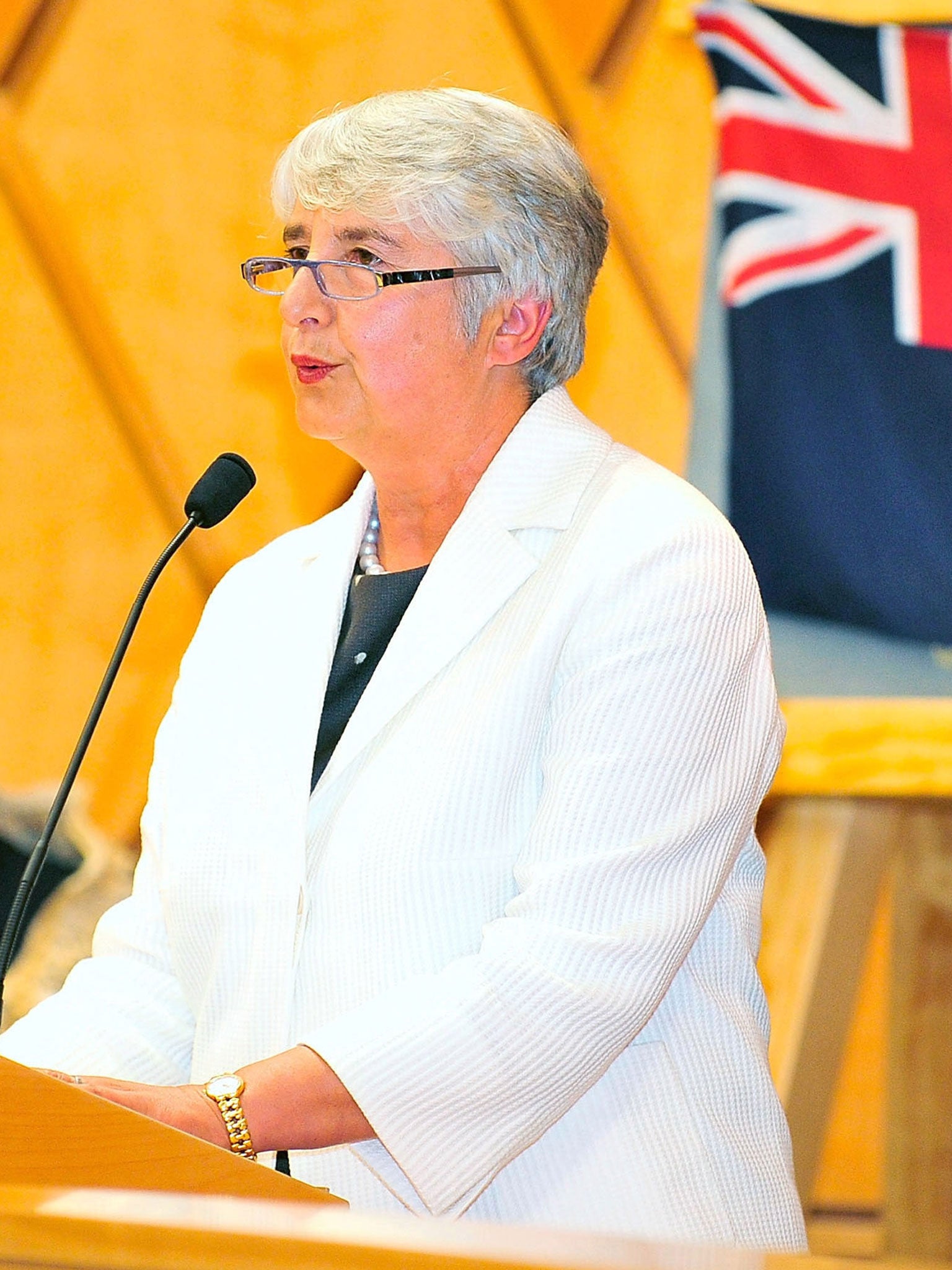Ten years on and 12,000 miles away from murder case that captivated New Zealand, a London hearing decides on freedom of man convicted of bludgeoning wife and child to death

More than a decade after Mark Lundy was convicted of bludgeoning his wife and child to death, one of New Zealand's most controversial murders came before the Privy Council in London yesterday.
In a dramatic claim, worthy of a case that has inspired heated debate in the antipodean nation, Mr Lundy's lawyer insisted that less than a week ago they had received evidence that could have been vital to the defence but was withheld. The court, he added, might draw the inference that there had been a "cover up" by the police.
The document concerned, David Hislop QC told four of the UK's most senior judges sitting alongside New Zealand's Chief Justice Dame Sian Elias, showed that a prosecution expert had deemed key forensic evidence had degenerated too much to be strong enough to convict. Yet the DNA formed a central plank of the prosecution case.
Twelve thousand miles from the provincial town where the murders took place, the Lundy appeal is likely to be the last New Zealand case brought before Judicial Committee of the Privy Council. More than two dozen smaller Commonwealth countries and British Overseas Territories still observe the ancient right of final appeal to London, but the Lundy case has only come to the UK because it pre-dates the 2004 establishment of New Zealand's own Supreme Court.
Yesterday Lundy's sister Caryl Jones and her husband David, who insist they are hopeful the 54-year-old will be cleared, were in court to hear the evidence. Back in New Zealand, however, his late wife's family have described it as "gut-wrenching" to have the matter go back to court. Her brother Glenn Weggery complained that the new hearing has brought back nightmarish memories of the morning he discovered the bodies.
Lundy, who sold kitchen furniture, left him home in Palmerston North on the morning of 29 August 2000 and travelled 90 miles to Petone. At the six-week trial, the prosecution claimed that he returned home and murdered her wife Christine, 38, and their seven-year-old daughter Amber in a frenzied attack at around 7pm that night before returning to his motel to see a prostitute. Evidence of Mrs Lundy's DNA, said to be brain tissue, was discovered on his polo shirt though police never found any murder weapon. He was found guilty of their murder in 2002 and months later the Court of Appeal upheld the conviction and increased his minimum sentence without parole to 20 years.
But his supporters claim it is miscarriage of justice. Over the years, led by horse breeder Geoff Levick, they have built up a case which they claim proves his innocence. They insist that Lundy would have not had time to make the return trip in a three hour window between documented phone calls from Petone. They also question the scientific evidence as well as the time of death, pointing out that both the lights and the computer were on in the house long after that hour.
Yesterday Mr Hislop said that the appeal would challenge two key planks of the prosecution case, the "fundamentally flawed" DNA evidence on the shirt as well as the time of death. He added it would also be looking at computer evidence as well as claims that the there was a failure to adequately direct the jury regarding identification.
"Last Tuesday we received a communication from the Crown. It is a substantial development as it relates to the state of the tissue taken from the appellant's polo shirt and hitherto had not been disclosed," said the barrister.
The document was from the senior officer in the case, Detective Sergeant Ross Grantham, requesting permission from his superior to seek out an expert in the United States. Within it he explained that the neuro-pathologist they had consulted, Dr Heng Teoh, had said the 58 day lapse in time before the cells on the shirt were found meant they had degenerated badly.
"He didn't think Mark Lundy should be convicted of murder on the strength of the cells," added the QC
The barrister said that material was never disclosed to the defence before the trial, adding : "We have absolutely no confidence whatsoever that the officer in charge met with his disclosure obligations."
While refusing to put the allegation himself, Mr Hislop said the Privy Council might draw an inference that "someone misled or covered up to secure a conviction".
Lundy's lawyers are asking the Judicial Committee of Privy Council to set aside jury verdicts on the basis that they were unreasonable and could not be supported by evidence. New Zealand's deputy solicitor-general Cameron Mander will be responding to the case for the Crown Law Office.
Subscribe to Independent Premium to bookmark this article
Want to bookmark your favourite articles and stories to read or reference later? Start your Independent Premium subscription today.

Join our commenting forum
Join thought-provoking conversations, follow other Independent readers and see their replies